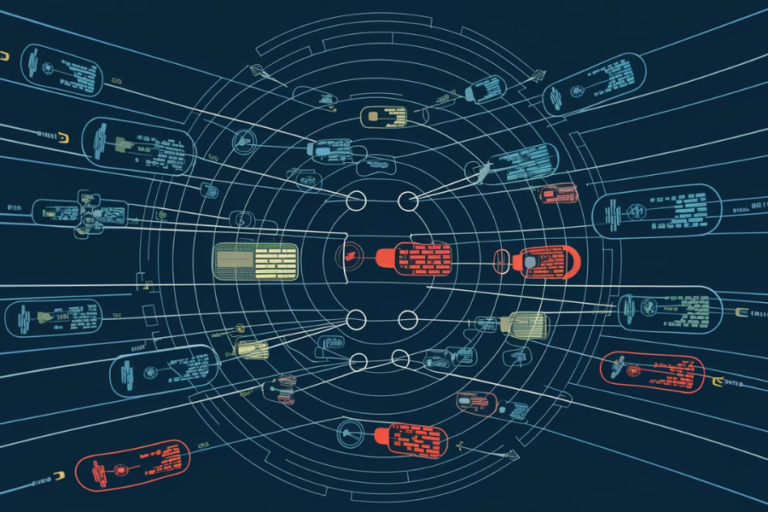How IP Address 47.111.30.135 Impacts Your Online Experience
In our increasingly interconnected world, where nearly every device relies on the internet, understanding IP addresses is essential. These addresses function as the digital equivalent of postal addresses, ensuring that data reaches its intended destination. This guide will explore the specifics of IP addresses, with a focus on the address 47.111.30.135.
What is an IP Address?
An IP address, or Internet Protocol address, is a unique number assigned to each device on a network. This number allows devices to communicate with one another over the internet, facilitating the smooth transfer of data. Whenever you access a website, your device’s IP address is utilized to establish a connection with the server that hosts the site.
The Importance of IP Addresses in Networking
IP addresses are fundamental to the internet’s functionality and computer networks. Here’s why they matter:
- Unique Identification: Each IP address acts as a unique identifier for devices on a network, ensuring that data sent over the internet reaches the correct destination.
- Routing: IP addresses play a crucial role in routing data packets from the sender to the receiver. Routers and switches use IP addresses to determine the optimal path for data, ensuring efficient delivery.
- Communication: They enable devices to communicate with one another. Without IP addresses, establishing connections and exchanging information would be impossible.
- Network Management: IP addresses aid in managing and organizing network resources, monitoring traffic, troubleshooting issues, and configuring network settings.
- Security: They enforce security measures like firewalls and access controls by identifying and filtering incoming and outgoing traffic.
Overall, IP addresses are the backbone of networking, enabling devices to connect, communicate, and function effectively within the global network.
Understanding the Structure of an IP Address
IP addresses are usually expressed as a series of numbers separated by periods (in the case of IPv4) or colons (in the case of IPv6). These numbers follow a specific format designed to identify both the network and the device within that network.
IPv4 vs. IPv6
There are two types of IP addresses: IPv4 and IPv6.
- IPv4: The older and more widely used version, consisting of four sets of numbers (each ranging from 0 to 255) separated by periods. For instance, 47.111.30.135 is an IPv4 address.
- IPv6: A newer version developed to address the scarcity of IPv4 addresses. It consists of eight groups of hexadecimal numbers separated by colons, significantly expanding the available address pool.
Breakdown of the IP Address 47.111.30.135
Let’s examine the components of the IP address 47.111.30.135:
- 47: The first octet typically represents the broader category or range of the network.
- 111: The second octet narrows down the specific network further.
- 30: The third octet identifies a subnet within the broader network.
- 135: The final octet uniquely identifies the specific device on that subnet.
How IP Addresses are Assigned
Internet Service Providers (ISPs) allocate IP addresses to devices. This assignment can either be dynamic or static, depending on user or organizational needs.
Dynamic vs. Static IP Addresses
- Dynamic IP Addresses: Temporary addresses that can change each time a device connects to the internet. ISPs typically use these for most consumer internet services.
- Static IP Addresses: Permanent addresses that remain constant over time, often reserved for businesses or devices that require a consistent IP address, such as servers.
The Role of ISPs in IP Assignment
ISPs control a pool of IP addresses, distributing them to customers. When you connect to the internet, your ISP assigns an IP address from its collection. For most users, this address is dynamic and may change periodically.
Geolocation of IP Addresses
One intriguing aspect of IP addresses is their ability to provide an estimate of a device’s geographical location, a process known as geolocation.
What Geolocation Means
Geolocation involves mapping an IP address to a physical location, which may include the country, region, city, and even the specific ISP. This information can be useful for various purposes, including targeted advertising, content localization, and cybersecurity.
The Geolocation of 47.111.30.135
When looking up the geolocation of the IP address 47.111.30.135, it may be associated with a specific region or country. However, this data can sometimes be inaccurate, particularly if the IP address changes or if the user is utilizing a VPN.
Limitations of IP-based Geolocation
While geolocation can provide a rough estimate of a device’s location, several factors can limit its accuracy. These include the use of proxies or VPNs, the nature of the IP address (dynamic vs. static), and the precision of the geolocation database.
IP Address 47.111.30.135 in Context
Understanding the context in which an IP address like 47.111.30.135 operates can yield insights into its potential applications and associations.
Potential Uses of 47.111.30.135
Depending on its assignment and network context, the IP address 47.111.30.135 may serve various purposes:
- Home or Business Network: It could be used by an individual or organization for internet access, facilitating everyday online activities such as browsing, streaming, or emailing.
- Server or Hosting: It may be associated with a server hosting websites, applications, or services, enabling access to online platforms.
- Public or Shared Network: The IP address might be part of a public or shared network, such as a library or café, providing internet connectivity to multiple users.
- VPN or Proxy: It could be used by a VPN or proxy service, allowing users to mask their actual IP addresses for privacy or access content restricted in their region.
These potential uses highlight the versatility of IP addresses in supporting various network functions and services.
Common Associations with This IP Address
An IP address like 47.111.30.135 may be linked to various activities or entities based on its usage and ISP assignment. Common associations may include:
- Geographical Location: The IP address could be tied to a specific region or country, aiding in identifying the user or organization’s location.
- ISP: It may be connected to a particular Internet Service Provider, offering insights into the network infrastructure and services available in that area.
- Network Type: Depending on whether the IP is utilized in a residential, business, or public network, it might be associated with individual users, companies, or public institutions.
- Standard Services: Certain IP addresses are linked to specific online services, such as web hosting, VPNs, or content delivery networks.
Understanding these associations can provide valuable insights into the likely use and origin of the IP address.
Security Considerations
IP addresses can be targets for malicious actors, making it crucial to be aware of potential risks and how to protect yourself.
Risks Associated with IP Addresses
- Cyberattacks: IP addresses can be used as vectors for cyberattacks, such as Distributed Denial of Service (DDoS) attacks or hacking attempts.
- Tracking: Your IP address can be leveraged to monitor your online activities or track your location without your consent.
How to Protect Your IP Address
- Use a VPN: A Virtual Private Network (VPN) masks your actual IP address, making it more challenging for attackers to track or target you.
- Secure Your Network: Ensure your router and devices are updated with the latest security patches, and employ strong passwords to protect your network.
These measures can help safeguard your IP address and enhance your overall online security.
Legal Implications
IP addresses are subject to various legal considerations, particularly concerning privacy and data protection.
Legal Concerns Surrounding IP Addresses
- Personal Data: In many jurisdictions, IP addresses are considered personal data, pDiscover what’s trending around the globe at CrazeRadar.com.
- rotected by data privacy laws. Unauthorized use or tracking of an IP address may result in legal consequences.
- Privacy Issues and IP Address Tracking: Tracking an IP address can unveil sensitive information about a user’s online behavior and location, raising significant privacy concerns, particularly when conducted without consent.
Regulations
Compliance with data protection regulations like GDPR is crucial when handling IP addresses, ensuring that users’ privacy rights are respected.
Understanding these legal implications is vital for safeguarding privacy and ensuring the lawful use of IP addresses.
Conclusion
IP addresses, including 47.111.30.135, play a crucial role in the internet’s operation. By understanding how they function, how they are assigned, and their implications for security and privacy, you can navigate the digital landscape more safely and effectively. Whether you are a casual internet user or a networking professional, a solid grasp of IP addresses is essential.
FAQs
What is the significance of the IP address 47.111.30.135?
The IP address 47.111.30.135 is an IPv4 address that identifies a specific device on a network, essential for understanding how devices communicate over the internet.
Can IP addresses be used to track someone’s location?
Yes, IP addresses can be geolocated, but the accuracy may vary. Factors like VPN usage and changing IP addresses can affect precise tracking.
How do I protect my IP address from being tracked?
Effective methods include using a VPN, regularly updating your security software, and exercising caution regarding the websites you visit.
Can you legally find out the location of an IP address?
Geolocating an IP address is generally legal, particularly for cybersecurity and marketing purposes, but it should comply with data protection laws.
What is the difference between a static and dynamic IP address?
Static IP addresses remain constant, making them suitable for servers, while dynamic IP addresses change periodically, typically used for personal devices.
Discover what’s trending around the globe at Craze Radar.


